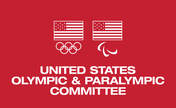 The human body is an amazing and complex system, and understanding how it works is essential for true healing. Most people are beginning to understand the importance of physical and emotional health, but few understand the connection between the two. That connection is fascia, the connective tissue that runs throughout the body and hold every blood vessel, bone, nerve fiber, and muscle in place. Fascia is also responsible for the transmission of neurotransmitters (e.g. serotonin, dopamine, acetylcholine) throughout your body. This connective tissue transmits hormones such as adrenaline and oxytocin throughout your body as well. What does this all mean? The long and the short is that your fascia is deeply intertwined with the nervous system. Fascia plays a major role in how we physically experience stress, including traumatic events. When the body experiences trauma, it creates tension in the fascia that can cause pain and limit movement. This tension can become chronic and prevent the body from healing completely. When emotional trauma occurs, the body also responds by creating tension in the fascia. Lack of moment, emotional stress, physical injury, and previous unresolved trauma can lead to physical and physiological changes to the fascia, which is often then associated with the symptoms most frequently seen in patients with fibromyalgia, chronic fatigue syndrome, chronic pain, and inflammation. If you scroll throughout this blog, it is apparent I frequently refer to the vagus nerve in my posts. To briefly review what the vagus nerve is, the vagus nerve plays a key role in communicating changes that occur within the fascia to your brain. The vagus nerve assists in maintaining the channels of communication between the brain and body that helps regulate your autonomic nervous system (ANS). The sympathetic nervous system (SNS) which is associated with fight or flight will increase the speed at which your body wants to respond or react to stimuli and the vagus nerve provides a steady brake to slow things down. In situations that are traumatic or life threatening, this “emergency brake” can kick in abruptly, bringing you to a sudden and hard stop. Sometimes this may result in physical symptoms including nausea, dizziness, or fainting. Fascia is the largest sensory organ in your body and its primary role is to communicate information about what is happening in your body to your brain. When we experience trauma, we either move into freeze (immobility) or faint. If this trauma response does not resolve we can feel stuck and over time, lose our connection to our bodily sensations. We may feel more disconnected or dissociated. When working to heal trauma, it is so important to understand how these vital physiological and anatomical structures play a pivotal role in not only recovering from traumatic events, but to also understand how we can work with these structures using mind-body sensory awareness. The key is to progress slowly on the path towards reconnecting with your body and restoring a relationship to your body after trauma.  `I am counting down the days until the 2022 Food Allergy Research & Education (FARE) Food Allergy Summit officially begins! This year the summit will be taking place in Orlando, Florida. I am both thrilled and honored to be co-leading a mental health presentation with Catherine Walker, who recently began studying as a freshman at Tufts University. Catherine has not let her food allergies define who she is and her story is so inspiring. You can read more about Catherine and her story here. I am also delighted to be leading an adults only workshop where will be discussing mental health and practical tips on how we can support overall mental well-being for adults and everyone in the family. You can learn more about FARE and the 2022 Summit by clicking here. Now that the June 15th deadline has passed and college coaches can reach out to high school athletes, the pressure felt by athletes is palpable. When I work with athletes, we collaboratively establish a mental game plan to assist them in preparation for a diverse variety of challenges ahead.
For example, when a student athlete learns to focus on small, but impactful goals, I notice a shift in their mindset. As the internal pressure for perfection decreases, the motivation to instead achieve excellence increases. Instead of focusing on the outcome of performance, we work on developing intentional awareness to areas of the game they want to improve. I believe sports are played with the body, but are won in the mind. And if an athlete concentrates primarily on impressing others through their performance, they are creating extra-tension which clouds purpose, passion and can lead to burnout. If you or your student athlete is feeling overrun with pressure, let's get a game plan together. I want to offer a heartfelt thank you to Baptist Health and their wonderful Lead Chaplain, Reverend Lisa Solwold for generously inviting me to participate as a guest speaker for their 8-week series, "Nourishing Your Caring Spirit: Transforming the challenge of the past to the strength of the future"
I am so grateful for ALL healthcare providers, especially the front line clinicians who have been working non-stop throughout the pandemic. You are my healthcare heroes. I am beyond excited to share that I have been recently selected as a participant for the United States Olympic & Paralympic Committee mental health registry.
Cultivating athletic environments where there is both understanding and communication about mental health is critical. I am thankful to be part of a community of like-minded professionals who are continuously striving to provide whole mind and body support and care to all athletes. Your Nervous System
The most important thing to recognize about your nervous system is that it does not ask your permission or your opinion before it does its job to protect you. This is essential in keeping you alive. How so? If your nervous system perceives your repressed emotional world as a greater predator than your physical anxiety, symptom, pain, and so forth, it will lock into protective mode and cause the symptom - trigger the symptom - to divert you from thinking about your repressed emotional world that you have no control over. Your Gut Deep in your brain, the hippocampus checks every sensory input it receives and compares it against our memories and experiences. If something is not right, the amygdala which is our alert system right next door to the hippocampus is activated. The amygdala communicates through sensations that you feel in your body and does so by sending a channel of information into your gut and other organs via the vagus nerve. The gut feeling you have should not be confused with emotions. Rather, it can help you process emotions both present and past. For example: imagine you feel like there is a lump in your throat when you feel upset. If it feels safe to do so, go into your body and ask: what is this lump sensation in my throat? Does it want to move or expand? What does it need from me in order to do so? A professional athlete who was once my patient had massive anxiety when younger players were drafted and/or traded to play on his team. He did a very brave thing: he went and got to know them and helped his amygdala learn that it was safe and friendly. How so? He learned to how to shuffle between all levels of the brain including: reasoning and logic, feeling and emotion, and wisdom of the body. By doing so, he was able to feel more integrated, less in conflict with himself, and feeling much more connected to his teammates. Do you ever have a gut feeling that you know you need to listen to? Our bodies are part of our minds and they speak to us every day. And when you pay attention, it can improve your life.
Sometimes your body knows what is right for you. It sends you signals. When your feelings are in a spin, the message from your body becomes very clear. However, the message or messages can become difficult to interpret when our mental health is in poor shape. Anxiety and inner conflict arise if our inner compass is cloudy and if our mind is at odds with itself in a constant state of cognitive dissonance. In my practice, I both encourage and educate my patients to learn how to listen to their own insides and actively tune into the sensations they experience in their bodies. By doing so, we can identify what is right for us and and feel empowered to take the small, safe steps towards healing. This type of somatic awareness can help us to become aligned in our thoughts, feelings, and actions. The gut feelings we experience are not just for emergency "fight or flight" situations, they are present all the time. Just as you are reading this blog post, if you focus your attention on the heart and gut regions of your body, you will begin to notice a response to my words. Just notice if any part of you feels my words to be true, or perhaps you feel "no that can't be true". Perhaps you notice your attention going elsewhere? Like reading ahead to see how much longer this post is? Just notice how quickly or slowly your body is able to take a complex situation and summarize it quickly, or moment by moment. There is to come on this topic, so stay tuned! This weekend and especially Sunday will be difficult for women I know both personally and professionally of all ages and backgrounds.
My post here is not to take away the pleasure and joy of this holiday for people who genuinely enjoy it, but rather to give voice to the alternative experiences. This is my alternative experience. This Sunday and every day I remind myself of all the women who have in many ways been maternal figures to be throughout my life. Not just my own mom. The Mother's Day narrative that is pushed into reality as a Hallmark holiday isn't everyone's story. And recognizing other people's grief does not and will not take away from your joy. There are many people out there who are eager to have their own Mother's Day stories witnessed and acknowledged. This post is for you. To those who are celebrating on Sunday please have your nice things! Delight in your parade. Savor them. And remember what you are experiencing is not a given.  There are going to be days where it may be hard to talk about our feelings. Just because we may struggle to express what we are feeling in a moment does not mean there is a requirement to withdraw from people until we can figure it out. I feel challenges are opportunities for growth in disguise. When we hit some type of wall with communication and connection, we are being challenged to develop new ways to improvise the way we are communicating and connecting. I love this idea of using emojis and a classic children's toy as an alternative method to communicate how we are feeling when we struggle to find words that will be able to cut the mustard. TikToks, gifs, and memes are also effective (let's be serious here - they are also super fun). What are some alternative ways you have learned to communicate how and what you are feeling? Look at a pencil. We know that in order for it to become useful pencil that from time to time, again and again it’s going to have to go through a resharpening. Well if this pencil could feel we could imagine how painful that would be. But that’s what it takes for it to be a useful pencil. Life is much the same. Painful experiences and challenges come to us all but it is through these opportunities that we build character and we grow.  Second is to keep in mind that we will be able to correct many of the mistakes we make along the way. Just like the eraser. So if we learn from our mistakes, they’re not mistakes, they are lessons we can use to do better for the next time around.
|
AuthorAmy Pope-Latham, LCSW is a board certified mental health professional in Ponte Vedra Beach, FL. Archives
December 2022
Categories
All
|




 RSS Feed
RSS Feed